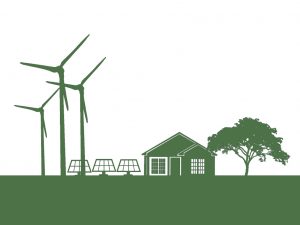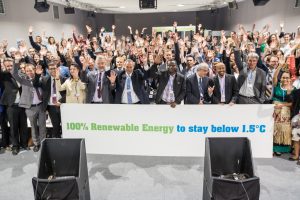The word is in and fossil fuels are out! The consensus has been built and the Paris Accords have ratified and legitimized this; if even the mere mining of coal releases dangerous methane into the atmosphere, the complete phase-out of coal and other fossils by 2050 is the most prudent course of action to forestall the horrendous by-products of global warming.
All over the world, many countries have indicated their intentions to realize this and have further taken steps to reduce their carbon creating actions, thus bringing in more eco-friendly cars, upgrading their public transport systems to much more energy efficient options and finally utilizing broad based renewable energy solutions to provide electricity for their homes and industries.
Currently, India hosts the world’s largest single-location solar plant in Kamuthi (a 648MW capacity plant completed on September 21, 2016 by Adani Power) and pledges to build even more in the coming years, projecting to generate 40% of its total power from renewable energy by 2030.
China on the other hand, is the world’s largest installer of renewable energy, leading in solar and wind installations and already producing 23% of its power from renewable energy to prove the seriousness with which nations regard the renewable energy option and push.
Having signed up to the Paris pact, what does Nigeria need? Nigeria simply needs more power. Whatever little power she generates today is sorely inadequate for her citizens. She needs to power her homes, hospitals and schools but cannot because of the meagre electricity she generates.
Coupled by an increasingly hostile economic environment that hosts power investors who are quite uninterested in expanding natural gas or coal power generation, the need for a creative power generation model has continued to remain sacrosanct in the country’s march to economic progress. And in this, the Paris agreement presents such creative opportunity.
Based on existing and verifiable indices, Nigeria stands in relative luck to make the most of the Paris pact as regards clean electricity generation and capacity upgrade. What she needs is not a replacement or overhaul of existing electrical generating and transmitting systems, but the construction of new structures for generating and distributing clean electricity.
Coupled with the lessons learned from a late effort to privatize once-government-owned power assets, new mini grid and off grid solutions have swiftly taken up attractive positions and continue to look the best amongst a dicey range of choices for the country. It is hoped that the country would tap into the Paris pact to scale up this in-country.
International bodies such as IRENA have also continued to drum further support for Nigeria to be more aggressive and ambitious in approaching renewable energy.
Urging for a greater slice of the total energy output to be commanded by renewables, IRENA recently stressed that Africa stands the best chance to lead the renewable energy revolution. Morocco seems to have taken the initiative and is presently leading the charge.
We however believe it is best Nigeria takes a bolder stance on renewables. And with a policy projection of 40% by 2030 for the contribution of renewable energy to her entire energy output, this has been made but now needs a lot of matching actions to become real.





